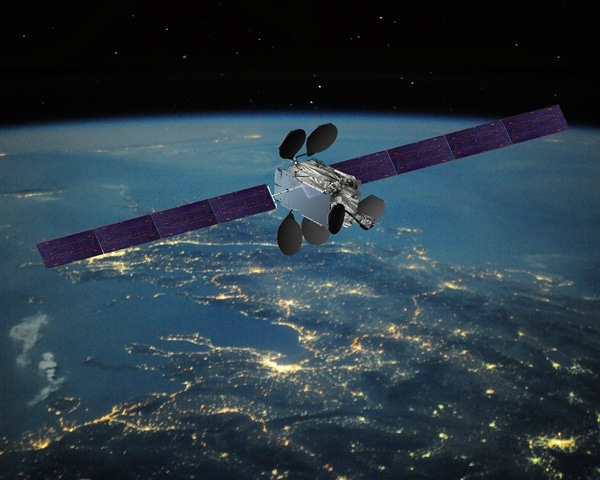Ofcom is backing satellites to help deliver broadband to difficult-to-reach areas, unveiling a new space strategy that includes the allocation of additional spectrum for satellite services.
November 10, 2022

Ofcom is backing satellites to help deliver broadband to difficult-to-reach areas, unveiling a new space strategy that includes the allocation of additional spectrum for satellite services.
The UK telecoms regulator has doubled the available spectrum in the Ku band for satellite services, which is good news in particular for the growing number of low-earth orbit (LEO) operators looking to space to provide high-speed broadband.
Two of those companies – Elon Musk’s Starlink, and Canada’s Telesat, a newcomer to the UK market – have been granted new earth station licences to boost their operations, with Ofcom talking up their ability to serve more homes and businesses across the country.
The regulator’s broader space strategy also looks at protecting earth observation satellites, and supporting new satellite launches and future missions to the Moon and to Mars. But for now, most of the concrete action is around extending broadband coverage.
Ofcom has opened up the 14.25 GHz-14.5 GHz band for satellite connectivity on land, in the air and at sea. Previously, geostationary orbit (GSO) and non-GSO satellites were restricted to the 14 GHz-14.25 GHz range. Satellite operators can now request that their licences be extended to include the new range, or can apply for a new licence, the regulator said.
It describes NGSO satellite systems, which include the rapidly-growing LEO sector, as “a crucial way to deliver better connectivity.” And indeed, the properties of those systems – such as high speeds and responsiveness, and low latency – mean that satellite-based broadband is finally becoming a credible option for those in remote or difficult areas. Starlink has captured the most headlines in the past few years, flinging thousands of LEO satellites into space in a bid to reach global coverage, but there are many others on a similar trajectory.
Starlink, whose satellite-based broadband service has been available in the UK for a year or so, has picked up new licences from Ofcom for six NGSO gateway earth stations, enabling it expand its offer to more homes and businesses. It currently operates three such earth stations.
Meanwhile, the regulator said it also approved an application from Telesat for an earth station network licences for its Lightspeed satellite constellation. That will enable the firm to launch services in the UK for the first time.
As it stands, we have no further information on when it will bring services to market, but it’s pretty clear that the satellite broadband sector is hotting up in the UK.
“Satellite technology offers faster and more reliable internet services for those living in remote areas, as well as planes and ships,” said David Willis, Spectrum Group Director at Ofcom, in a statement accompanying the regulator’s space strategy announcement.
“Today is one small step in our work to make sure everyone can benefit from these giant leaps in innovation,” Willis said.
Well, it wouldn’t be a satellite announcement without the gratuitous inclusion of an old space cliché, would it?
Get the latest news straight to your inbox. Register for the Telecoms.com newsletter here.
About the Author(s)
You May Also Like








.png?width=300&auto=webp&quality=80&disable=upscale)


_1.jpg?width=300&auto=webp&quality=80&disable=upscale)


.png?width=800&auto=webp&quality=80&disable=upscale)